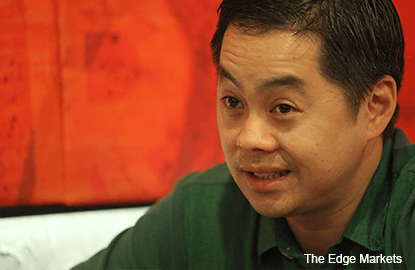
This article first appeared in Personal Wealth, The Edge Malaysia Weekly, on Dec 7 - 13, 2015.

Types of documents
DIYLaw will carry three types of documents — simple, intermediate and expert. The platform will introduce simple documents first to test how it goes before moving on to more complex ones.
The simple documents include those for bills (a declaration in writing) or mitigation matters as well as tenancy or employment agreements, all of which can be downloaded and edited.
As for intermediate documents, such as those for probate and divorce, users can download and edit them but may still need to engage a lawyer to represent them. “If they require that you go to court, you may need a lawyer to go to court [on your behalf],” Bon says, adding that if users have already drawn up the document, some lawyers may even offer their services at a lower cost.
Expert or complex documents include things like a Personal Data Protection Act (PDPA) handbook or shareholders’ agreement. The target group for these documents are in-house counsels who can use the templates and edit them accordingly for their company’s needs.
Bon aims to have as many legal documents on the platform as possible. “With technology, everything is possible. It only depends on whether one is prepared to spend a great deal of time and money to bring down the barriers. For example, we are looking at algorithms to come out with templates for Section 181 of the Companies Act 1965, such as petitions for winding up the business.
“These are more complex, but imagine a day when a shareholder can type his or her company dispute into the DIYLaw engine and churn out a first draft oppression petition or have some ready legal solutions at hand.”
In addition to providing templates, the DIYLaw portal will have features that help educate the public, such as why some clauses are necessary and whether they suit the user’s purpose. There will also be a wizard function where users have to answer some questions, and while they are doing so, the wizard will create or replace the document. For the first phase of the platform, Bon and his team are looking at coming out with nine simple templates before gradually growing the list according to the needs of its users.
Bon is not planning to profit from DIYLaw, even though he has spent a lot of time and money on it. “Access to justice and legal services is a human right. We need to spend money and time developing the portal, without knowing what the response will be. It is a lot of time and money, but we think it is fun and important to do, so the firm will invest in it,” he says.
Bon hopes Malaysia’s legal scene will improve with the launch of DIYLaw. He is also working on other projects with his organisation, Collective of Applied Law and Legal Realism (CALR), to revolutionise the country’s law sector.
CALR is a pro bono outfit comprising lawyers who pump in a fixed amount from their income every month for pro bono projects such as DIYLaw. Its objective is to revolutionise the law, radicalise lawyers and reshape legal education.
Bon welcomes “competition”, and will support other bodies or individuals who want to run the same service as DIYLaw as he believes it is the right thing to do. “It shouldn’t be monopolised by us. I want people to remember that,” he says.
“We support any initiative that will democratise and revolutionise the law using technology. If others want to do the same, go ahead. We will be happy and will applaud them, and even promote them on Twitter using our handle, @theCALR.”
Bon hopes to see the legal sector evolve with technology. “Now, you still have to download a pdf document of the template, right? My dream is that we can make it easier. Maybe by using a digital signature service on your phone to conclude agreements, sign and send. The easier it is, the more people will use it. The literacy level will be higher and there will be fewer cases of people cheating each other … those kinds of things,” he says.
DIY law around the world
While do-it-yourself (DIY) legal documents are still new in Malaysia, the legal bodies in other countries have developed their industry to move in tandem with modern technology.
Bon says while these websites have similar models, the intentions of the companies behind them can be different. “For example, Dragon Law in Hong Kong. Its function is to attract clients, who will have lawyers assisting them. Basically, it channels work back to lawyers. There are websites that just monetise the templates.”
US-based Rocket Lawyer, which was founded in 2008, provides an extensive range of documents, from those for personal matters, such as marriage, taxes and loans, to those for businesses, such employment, trademarks and copyright. Its website is very comprehensive. For example, if a consumer is looking for divorce documents, it can provide documents for before the divorce, after the divorce and custody. Additionally, there is a list of frequently asked questions for all the documents available and a list of attorneys who consumers can consult with through its On Call service.
Singapore-based LawCanvas offers simple documents, such as those for website privacy policies, adviser agreements and shareholders’ agreements. The website began operating in May last year and has been steadily gaining traction.
Save by subscribing to us for your print and/or digital copy.
P/S: The Edge is also available on Apple's AppStore and Androids' Google Play.